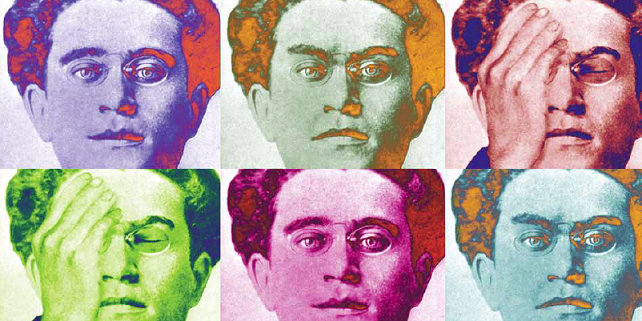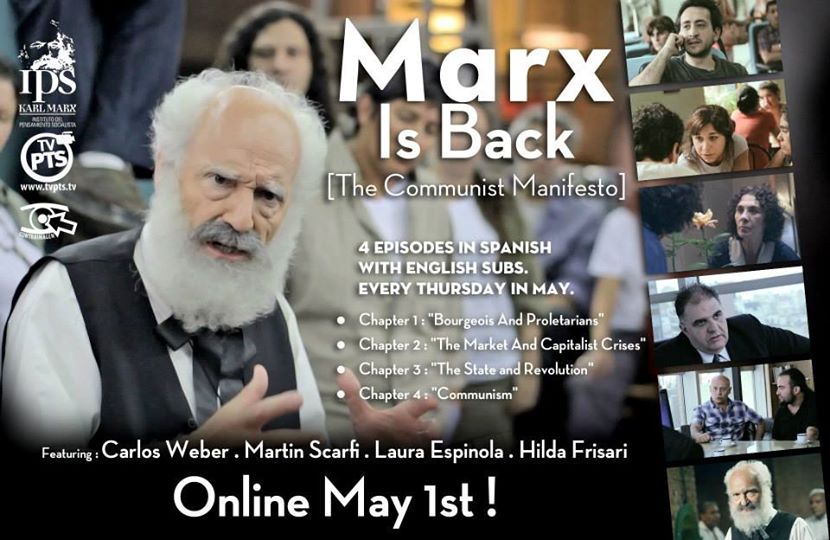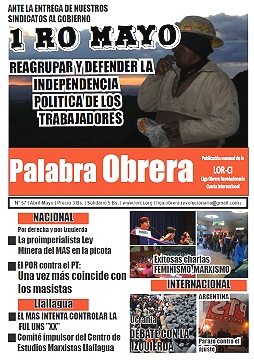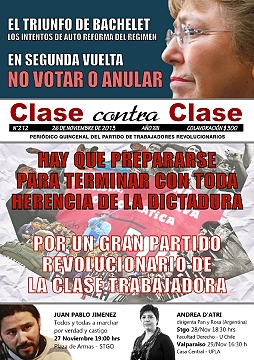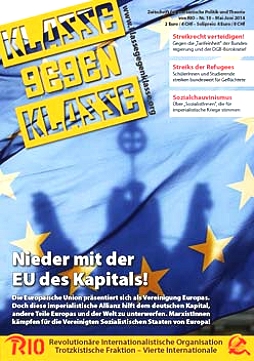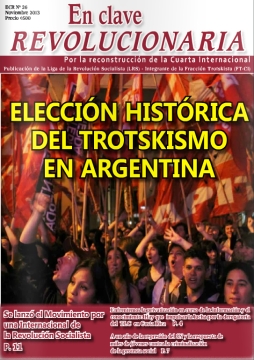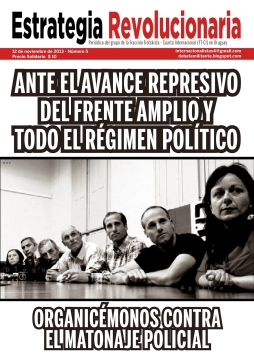Spanish State: Pablo Iglesias and his Gramsci ’à la carte’
16/05/2015
Pablo Iglesias and his Gramsci ’à la carte’
In his recent article published in Público and republished in the friendly blog Gramscimanía, Pablo Iglesias gives an interpretation of the theory of Antonio Gramsci, tending to justify his electoral politics, after the earthquake suffered by the leadership of PODEMOS facing the resignation of the "number three", Juan Carlos Monedero.
There is a certain internal coherence in the article, however, it is riddled with ideological operations which together express a reduction of the Gramscian thought. Let us see why.
Firstly, Iglesias assimilates the concepts of hegemony and trench warfare with that of "cultural" and essentially "superstructural" struggle. Even though this is a possible interpretation of some of the formulations stated in the Prison Notebooks (Iglesias’ interpretation would be like a "postmodern" version of its appropriation by Palmiro Togliatti), works like The Gramscian Moment (Brill, Leiden-Boston, 2009) by Peter D. Thomas, of which we have made several criticisms, or by Alvaro Bianchi, O Laboratório de Gramsci (Campinas, Alameda Editorial, 2008), it shows that only by forcing the reading of the question of hegemony into a "culturalist" sense, one can make such an assimilation without making any nuances.
Iglesias says: "Gramsci was the first to understand hegemony not as the necessity of the socialist organizations to lead subaltern sectors which are different from the working class or to ally with sectors of the bourgeoisie, but as a set of superstructural mechanisms, specially in a cultural sense (...)"
However, in a "legendary passage" (Iglesias dixit) Gramsci states that hegemony "if ethical-political, it can’t but also be economic, it can’t but have its foundations in the decisive function which the leading group exercises upon the decisive core of economic activity" (C13 §17).
Secondly, from this first assimilation of the struggle for hegemony with "cultural battle", Iglesias takes a step further and reduces it to the "electoral struggle to impose a narrative" (in Argentina this meant a long road from Kirchnerism to moderate Peronism.)
"What happens is that power in the advanced societies not only is expressed through coercive mechanisms but predominately through consent and consensus", Iglesias says.
However, in another traditional passage (quoted some years ago here in a polemic with Kirchnerism) Gramsci explains that
"The modern political technique has fully changed after 1848, after the expansion of parliamentarism, of the regime of trade unions and political parties, of the formation of wide state or "private" bureaucracies (political-privat, of parties and unions) and the organizational transformations of the police in a broad sense, that is, not only that of the state service which is intended for the repression of crime, but also the state and private organized forces as a whole for the purpose of safeguarding the political and economic control on the part of the ruling classes. In this sense, entire "political" parties must be considered political police agencies which have a preventive and investigative character" (C13 § 27).
These definition does not indicate that this state and private "wide bureaucracies" (which in the 20th century came to transfigure into an aberrant system of nation states under the leadership of the various forms of Stalinism) had the "consensus" as a predominant praxis. Or, in any case, it is a consensus which is monitored with the method of political police, a consensus which looks a lot like coercion. If Iglesias would observe the "consensual" union bureaucracy on which his admired Laclausian Kirchnerism rests, or even the union bureaucracy of his country, he would have to review this simplistic conclusions with which he tries to theorize his electoral opportunism.
Behind this is the Gramscian theory of the integral State which Gramsci summed up as "dictatorship + hegemony" (C6 §155).
And given that Iglesias talks about "legendary passages" without mentioning them, we can quote the famous fragment "Analysis of Situations: Relations of Force" (which can be read in C13 §17 already quoted above) in which three levels of relations of force are posed: social, political and political-military force, so that the conquest of hegemony, which for us involves the establishment of a proletarian party that struggles for it, cannot be separated from the development of the social movement of the working class, and at the same time it doesn’t stop at a "cultural" influence but it gives way to the "political-military movement" which Gramsci illustrates with the archetype of a war of national liberation, but the class equivalent of which is the civil war.
That is to say, the struggle for hegemony is not reduced to the "cultural" nor the "electoral" struggle, much less if, as in the case of Iglesias, the world breaks down into "politicians who create a narrative" and "voters who opt for one or the other narrative", a division which curiously resembles the distance between the "rulers and the ruled" which Gramsci considered that Marxism, as a theory and historical movement, should combat.
Ultimately, Iglesias’ idea is that being hegemonic means to conquer a majority. Hence all the gestures that he has been making which have provoked much criticism and even the resignation of Monedero. In this same sense he says that PODEMOS was born to win the general elections, in tune with his idea that "the State is the last hope of the peoples" (as he stated in an interview with Chantal Mouffe). He goes by a similar idea to that of Stathis Kouvelakis who argues that "one has to seize the State without letting it seize you". This kind of post-Poulantzian utopia reproduces once again the same problem which we referred to above: Starting from which real changes in the relations of social and political forces do this "leftists" like Syriza and PODEMOS intend to come to "power" and what "power" are we talking about here?
Since the only way to "seize the State without letting it seize you" is with a strategy of revolutionary mobilization of the working and popular masses (which implies destroying the State), the politics of "using the popular support to win elections with a discourse of the centre" is not only the opposite of "NOT letting the State seize you" but it is also directly functional to the recomposition of the (capitalist) state authority in crisis.
Elsewhere we have criticized the "positionalism without war of positions" of PODEMOS or Syriza.
The absolute positionalism is powerless because it negates the maneuvering or it leaves it for eventual moments which never come (and therefore it doesn’t prepare for it.) But the "hollow positionalism" claimed by Iglesias is a grotesque degradation which explains a bit the current crisis of PODEMOS: before "coming to power" they already have a crisis due to their capitulations.
The same thing happens with Iglesias as it contradictorily happened with many "Gramscians": from the analysis of the passive revolutions as processes they went over to the vindication of the passive revolution as a "project" (to use an expression of Massimo Modonesi). The "vigorous antithesis" which Gramsci talked about is not to the liking of this electoral left without social forces.
